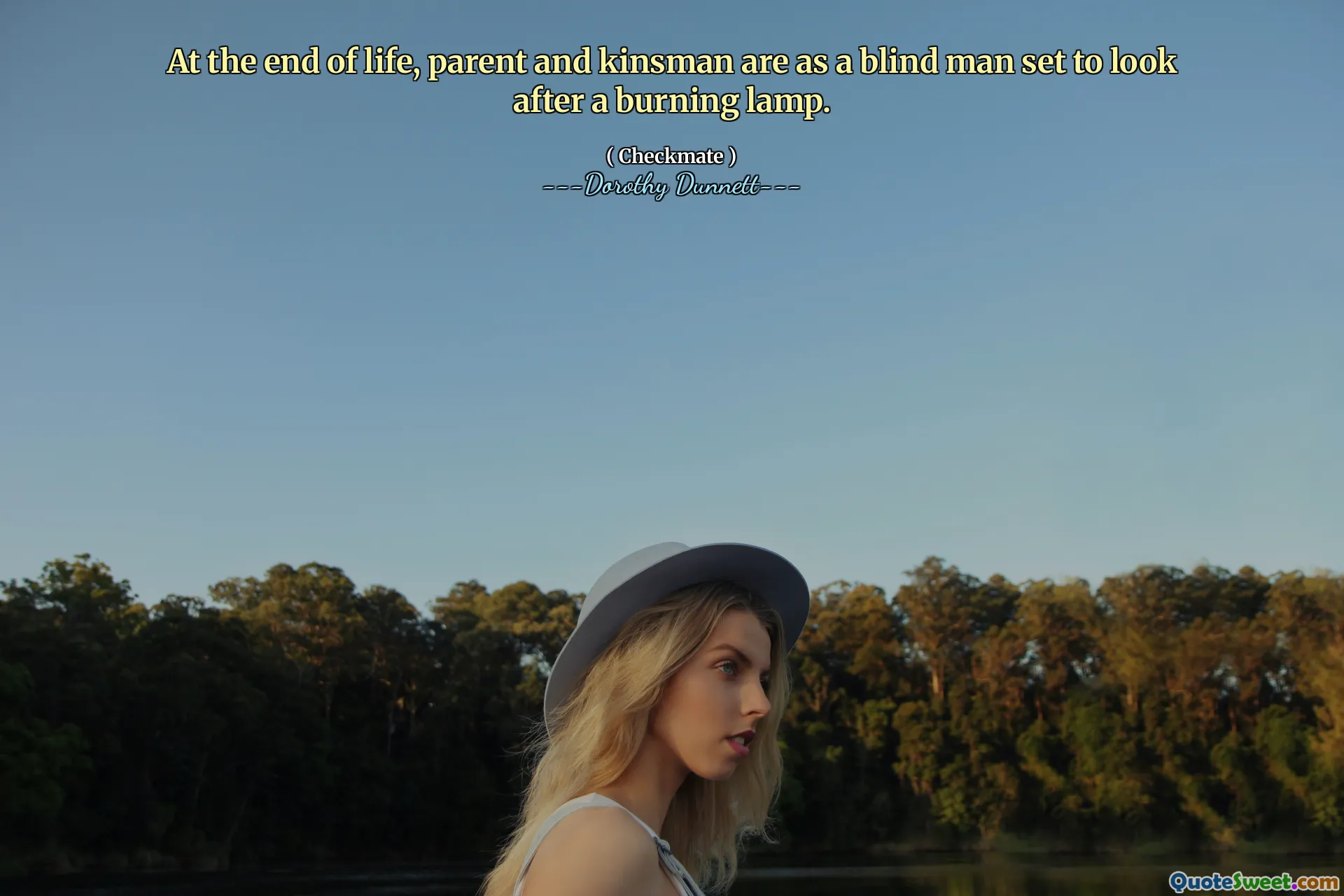
At the end of life, parent and kinsman are as a blind man set to look after a burning lamp.
This evocative quote from Dorothy Dunnett's Checkmate presents a powerful metaphor about vulnerability and the inevitability of decline at life's end. The imagery of a blind man tasked with overseeing a burning lamp suggests an inability to protect or sustain something vital, despite the best intentions. It reflects the frailty and helplessness that both the elderly and their caretakers may experience when confronting the final stages of life.
The 'burning lamp' can be interpreted as a symbol of life itself—precious, delicate, and requiring attentive care. Yet, as the quote suggests, even those closest by blood, like parents or kinsmen, may lack the capacity—whether physical, emotional, or cognitive—to sustain that flame effectively. This observation underscores a poignant truth about human dependency and the limitations of family bonds in facing mortality and decline.
Moreover, the metaphor invites readers to consider the broader implications of responsibility and care. It poses challenging questions about how society supports its vulnerable members: Are even intimate relationships sufficient to safeguard dignity and wellbeing? Or does the natural progression of frailty demand additional forms of support and compassion, beyond kinship?
Ultimately, the quote resonates deeply with universal human experiences around aging, caregiving, and loss. It gently confronts us with the uncomfortable reality that love and intention may not always be enough to overcome incapacity. Yet, it also implicitly honors the persistent efforts of those who, despite their own blindness or limitations, strive to hold the light for loved ones enduring their final journey.





